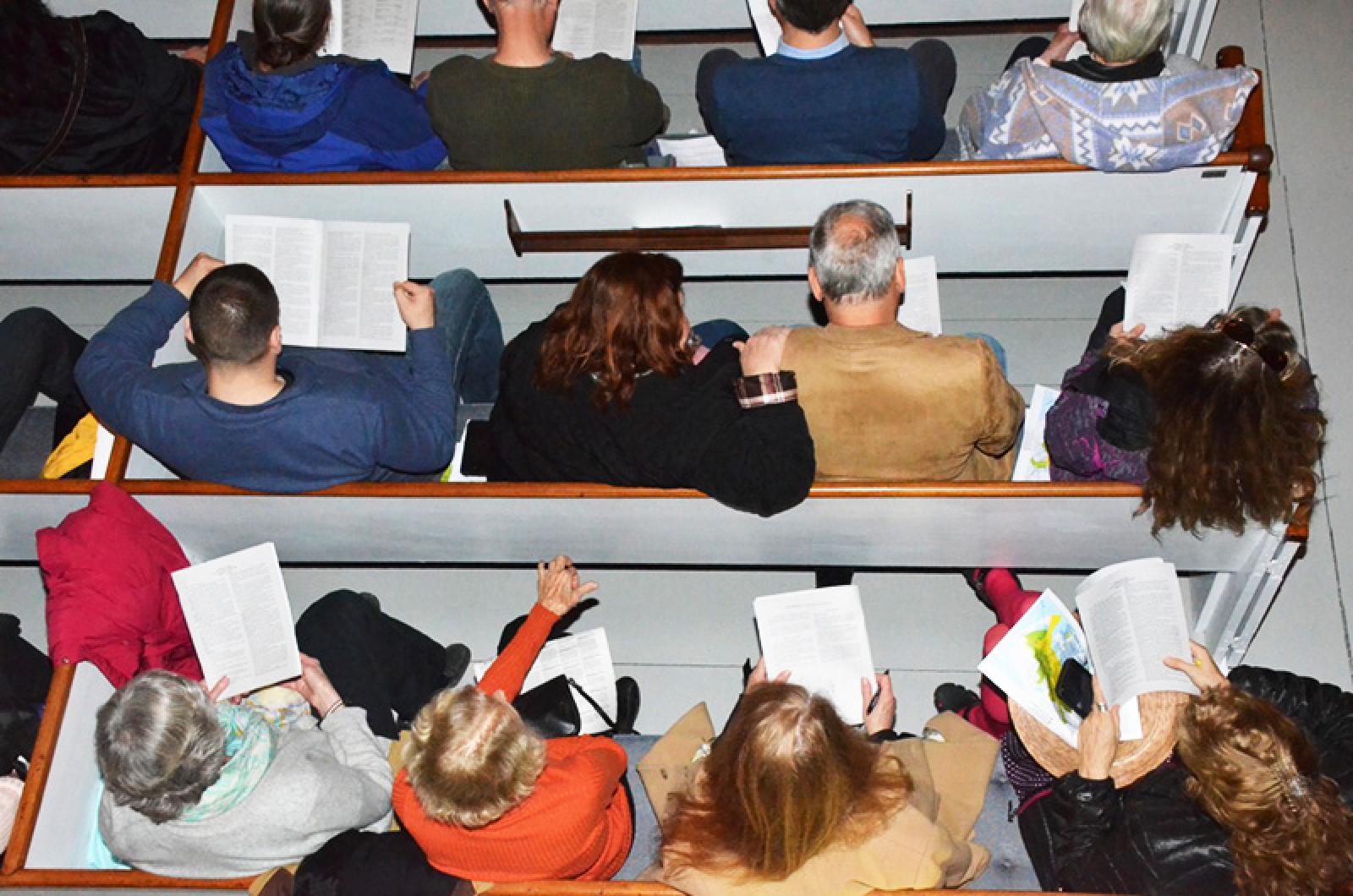While government gridlock remains the order of the day in Washington, it is reassuring to see civic engagement alive and well on Martha’s Vineyard.
This year’s annual town meeting season has been the most active in recent memory, with hundreds of voters turning out for successive nights of meetings to debate everything from town budget allocations to new zoning bylaws.
Even school children became swept up in town meeting fervor. A bylaw proposed and pushed by fifth- and sixth-graders to ban the sale of single-use plastic bottles won overwhelming approval in West Tisbury and Chilmark and enabled a delegation of the young environmental activists to experience democracy up close.
The hottest topic of the season — a proposal to create a housing bank — was ultimately sent back to committee for more study, but fierce debate over the plan forced voters to engage in the details of this complex issue and spurred a new sense of urgency around the Vineyard’s growing housing crisis.
Though debate threatened to grow rancorous at times, by the time five out of six town meetings were adjourned, proponents and opponents of the initiative had agreed to collaborate and hold joint forums to address the lack of affordable, year-round housing islandwide.
Town meeting is the one time each year when voters get to publicly express their desires and concerns about how their tax money is being spent. In large part thanks to taxes from seasonal homeowners who put fewer demands on town services, the Vineyard enjoys some of the lowest tax rates in the state. But taxpayers are justifiably concerned about rising costs for education and town government, and this year’s warrants offered rich opportunity to weigh in on both.
For the most part, debate was constructive. In Tisbury, where the vote last year to reject a plan to build a new elementary school brought a bitter conclusion to a long planning process, there were signs of healing. Voters readily agreed to fund a new plan to renovate the existing school, and selectmen pledged to take an active role in the process.
In Oak Bluffs, where voters refused to help fund a feasibility study to renovate the high school, the discussion served to surface a long-simmering issue over apportionment of high school costs. The school superintendent plans to work with all the towns to address the funding formula in the months ahead.
With one town meeting still to go — Aquinnah convenes its annual town meeting on May 14 — weary voters are to be congratulated for a town meeting season marked by civil discourse and an openness to work together for the greater good. Whether the several issues that were tabled for further discussion will end in compromise is not yet clear, but even the pledge of cooperation was a balm in an era marked by factionalism.
Chuck Hodgkinson, the retiring longtime finance committee member from West Tisbury, summed it up on Tuesday night at the end of the annual town meeting — which had run to a third night.
“I just want to compliment everybody. We could teach our representatives in Washington how to govern,” he said.




Comments (1)
Comments
Comment policy »